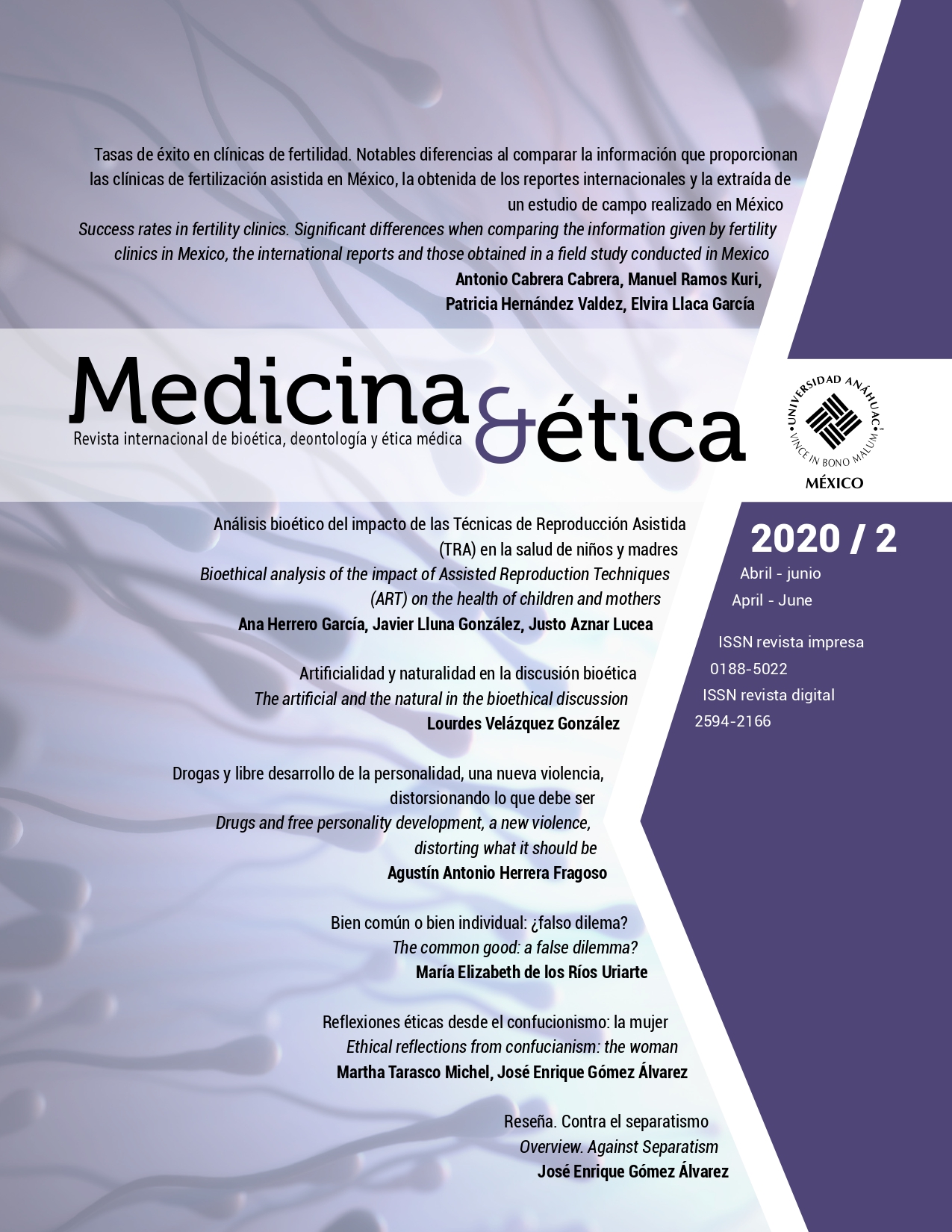Ethical reflections from confucianism: the woman
Main Article Content
Abstract
The article summarizes the position or role of women in classical Confucianism. The article starts from the classic texts of the Confucianism looking for elements of the texts that give clues to the conception and treatment of women. Confucianism as a practical philosophy becomes an ethical doctrine founded strongly on virtue with a view to improving individual man and society as a whole. Virtue is the axis of the actions of the individual and the State. Details of the role of women in society are described in the book of Rites, which is practically reduced to their role as wife and mother. The subordination of women to men and in their decisionmaking is clearly established in the texts. Concluding, Confucianism is the relationship of kinship that achieves the gender of women. Although, as for Catholicism, both sexes are complementary.
Downloads
PLUMX Metrics
Article Details

This work is licensed under a Creative Commons Attribution-NonCommercial-ShareAlike 4.0 International License.
Medicina y Ética is distributed under a Creative Commons License Atribución-NoComercial-CompartirIgual 4.0 Internacional.
The author keeps the property rights with no restriction whatsoever and guarantees the magazine the right to be the first publication of the work. The author is free to deposit the published version in any other medium, such as an institutional archive or on his own website.
References
(2) LEVENSON, J. Confucian China and its Modern Fate: The Problem of Intellectual Continuity, Berkeley-Los Ángeles: University of California Press; 1968. https://doi.org/10.1086/ahr/72.2.668
(3) CONFUCIO. Los cuatro libros de Confucio. Trad. de Juan Bautista Bergua. Madrid: Ediciones ibéricas-La crítica literaria; 2010.
(4) SÉNECA, L. Cartas a Lucilio. México: SEP; 1985.
(5) LIJING, Tratado de los ritos Vol. II (LIBROS IX- XVIII) Traducciones de FULVIO SCARCIA, LEONARDO LA ROSA, JULIO LÓPEZ SACO. Madrid: Univesidad Carlos III; 2009 [Consultado 7 Dic 2019]. Disponible en: https://www.academia.edu/18424415/Lijing._Tratado_de_los_Ritos._Vol_II_Libros_IX-_XVIII_
https://doi.org/10.5944/etfvii.24.2011.1407
(6) LITTLE JOHN, L. Confucianism: How Analects Promoted Patriarchy and Influenced the Subordination of Women in East Asia. Young Historians Conference; 2017, 9. [Consultado 14 Oct 2019] Disponible en:
http://pdxscholar.library. pdx.edu/younghistorians/2017/oralpres/9
(7) CROSBY, BRUCE. Never Disobey’: How Confucian Filial Piety Is Counterproductive to Its Goals for Society? Armstrong Undergraduate Journal of History [Internet]. 2019. [Consultado 10 Dic 2019] (9) 1. Disponible en: https://digitalcommons.georgiasouthern.edu/aujh/vol9/iss1/8/ https://doi.org/10.20429/aujh.2019.090108
(8) WALKER, V. Analectas en Femenino: una crítica de género al texto de Confucio. [internet]. Pensamiento y Religión en Asia Oriental; 2009 [Consultado el 20 Dic 2019] Disponible en: https://www.academia.edu/355219/Analectas_en_Femenino_Una_crítica_de_Género_al_Texto_de_Confucio
https://doi.org/10.1353/ntc.1994.0007
(9) S.A. Pensamiento Chino. Textos. [internet].Universidad de Granada; s.f. [Consultado el 20 Ene 2020] Disponible en: https://www.ugr.es/~psgines/Docencia/PensChino/PensChiTextos.pdf
(10) JIJI. LA representación de las mujeres en el cine chino contemporáneo y la Influencia del pensamiento de Confucio. [Doctor]. Carlos III; 2016.
(11) JORDAN, N. Comparative analysis of intergenerational solidarity programs in Spain and Japan. [Grado]. Universidad Autónoma de Madrid; 2019.

